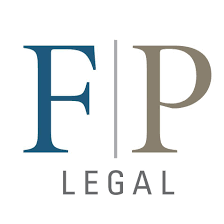Resources > Publications
We encourage you to browse this Resources section for timely articles and other materials. Please visit our Events page to learn about upcoming seminars, presentations, and speaking engagements that may be of interest to you.
Categories
-
The “Live Hearing” Requirements in the Department of Education’s Title IX Final Rule: Start Your Engines
Trial lawyers around the country are familiar with John Henry Wigmore’s maxim that cross-examination is “beyond any doubt the greatest legal engine ever invented for the discovery of truth.” The accuracy of Professor Wigmore’s assertion is itself a matter of debate. Nevertheless, that “legal engine,” a bedrock of courtrooms for centuries, will soon be a central feature of sexual harassment grievance hearings at American colleges and universities.
Related Professionals: Christopher R. Tate
-
Brand Protection and Trademark Law Basics
Brand Protection and Trademark Law Basics
Previous versions of this article by Andrew Stockment have been published by the American Bar Association, the Virginia State Bar, and The Virginia Bar Association.
Practically every business has a brand—a name, a logo, or some other mark used to identify its products or services. Trademarks allow businesses to develop brand reputation and public goodwill in connection with the associated goods or services, and consumers rely upon trademarks and the reputation of the products sold under those marks to inform their buying decisions. As a result, trademarks are often among the most valuable and important assets owned by a business.
Because trademarks allow businesses to develop brand reputation and public goodwill in connection with their products and services, trademarks are often highly valuable assets and should be protected. Although unregistered trademarks receive some protection under the common law and under the federal Lanham Act, trademarks can be further protected through registration under both Virginia and federal laws, and federal trademark registration provides significant additional substantive and procedural rights.
Related Professionals: Andrew B. Stockment
-
Understanding Copyrights and Works Made for Hire
Previous versions of this article by Andrew Stockment have been published by the American Bar Association, the Virginia State Bar, and The Virginia Bar Association.
Copyrights are unique among the various types of intellectual property rights because they are the most easily obtained but, arguably, the most misunderstood. And within the sphere of copyrights, the concept of “works made for hire” is particularly counterintuitive. This article gives an overview of some copyright law fundamentals and then unpacks the law regarding the requirements for a work to qualify as a “work made for hire.”
Related Professionals: Andrew B. Stockment
-
Two-Factor Authentication: Simple and Powerful Security
This article by Andrew Stockment was published in the Winter 2014-15 issue of Opening Statement, the VBA Young Lawyers Division newsletter.
This article provides an overview of the benefits of two-factor authentication and discusses some general password best practices.
Related Professionals: Andrew B. Stockment
-
The “Live Hearing” Requirements in the Department of Education’s Title IX Final Rule: Start Your Engines
Trial lawyers around the country are familiar with John Henry Wigmore’s maxim that cross-examination is “beyond any doubt the greatest legal engine ever invented for the discovery of truth.” The accuracy of Professor Wigmore’s assertion is itself a matter of debate. Nevertheless, that “legal engine,” a bedrock of courtrooms for centuries, will soon be a central feature of sexual harassment grievance hearings at American colleges and universities.
Related Professionals: Christopher R. Tate
-
Brand Protection and Trademark Law Basics
Brand Protection and Trademark Law Basics
Previous versions of this article by Andrew Stockment have been published by the American Bar Association, the Virginia State Bar, and The Virginia Bar Association.
Practically every business has a brand—a name, a logo, or some other mark used to identify its products or services. Trademarks allow businesses to develop brand reputation and public goodwill in connection with the associated goods or services, and consumers rely upon trademarks and the reputation of the products sold under those marks to inform their buying decisions. As a result, trademarks are often among the most valuable and important assets owned by a business.
Because trademarks allow businesses to develop brand reputation and public goodwill in connection with their products and services, trademarks are often highly valuable assets and should be protected. Although unregistered trademarks receive some protection under the common law and under the federal Lanham Act, trademarks can be further protected through registration under both Virginia and federal laws, and federal trademark registration provides significant additional substantive and procedural rights.
Related Professionals: Andrew B. Stockment
-
Understanding Copyrights and Works Made for Hire
Previous versions of this article by Andrew Stockment have been published by the American Bar Association, the Virginia State Bar, and The Virginia Bar Association.
Copyrights are unique among the various types of intellectual property rights because they are the most easily obtained but, arguably, the most misunderstood. And within the sphere of copyrights, the concept of “works made for hire” is particularly counterintuitive. This article gives an overview of some copyright law fundamentals and then unpacks the law regarding the requirements for a work to qualify as a “work made for hire.”
Related Professionals: Andrew B. Stockment
-
Two-Factor Authentication: Simple and Powerful Security
This article by Andrew Stockment was published in the Winter 2014-15 issue of Opening Statement, the VBA Young Lawyers Division newsletter.
This article provides an overview of the benefits of two-factor authentication and discusses some general password best practices.
Related Professionals: Andrew B. Stockment

